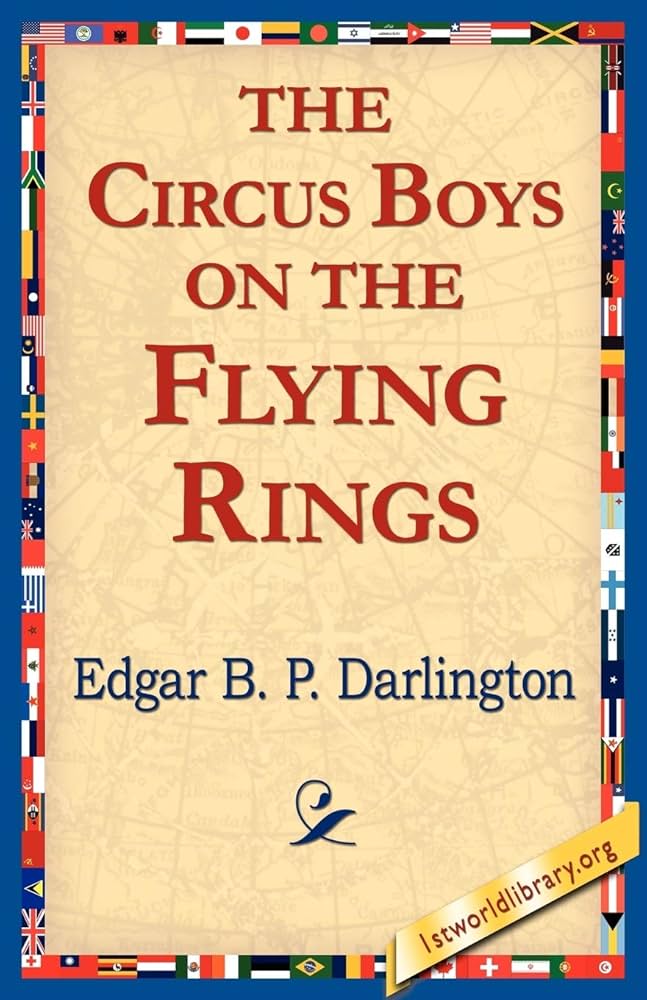Chapter XV — The circus boys on the flying Rings
byChapter XV opens on a note of earned satisfaction, with Phil Forrest enjoying the aftermath of a well-executed performance. Mr. Miaco, the veteran clown, shares a mix of praise and playful caution, warning Phil about the dangers of pride while acknowledging his progress. The friendly banter isn’t just for laughs; it’s rooted in the practical wisdom of those who’ve endured the long grind of circus life. With each passing show, Phil is growing—not just in skill, but in character. He soaks up every bit of advice and sees his future not merely as a performer but as someone who could one day lead a show of his own. The dream, while ambitious, is spoken aloud with enough confidence to spark interest and amusement among his peers. The tone is light, but the message is clear: this boy is serious about carving out a lasting place in the circus world.
Camaraderie weaves throughout their journey, binding Phil and Teddy together through both spectacle and struggle. Their shared routines, quick jokes, and mutual support form the heart of their relationship. Whether they’re figuring out how to dress with stiff, rain-soaked clothes or laughing through discomfort, they embody the resilience that defines circus life. Mr. Miaco’s mentorship serves as an unspoken guidepost, showing them how to blend humor with discipline. The circus isn’t just their job—it’s their proving ground, their second family, and their school all rolled into one. That sense of belonging is what keeps them going through cold nights and long hauls between towns. Every tent they raise becomes a reminder of what they’re building, both onstage and off. It’s this shared purpose that makes their connection feel so deeply rooted, even as the scenery constantly changes around them.
Practicality becomes a theme as the boys navigate their living conditions inside the crowded canvas wagon. Rain pelts the thin fabric overhead, soaking everything that isn’t hung or stowed. But instead of complaint, they choose cleverness, coming up with ideas like pooling money for rubber coats or repurposing makeshift covers. Their adaptability is sharpened with every new city and storm, forging skills that extend well beyond the ring. Where some might see misery, Phil and Teddy see an opportunity to toughen up and stay in the game. That mindset—part survival, part optimism—is what separates the dreamers from the doers. In the end, their strength isn’t in dodging discomfort, but in laughing through it and finding ways to keep moving forward.
By evening, the day’s wear has fully settled in, and the boys seek out warmth wherever it can be found. The steam boiler, tucked away like a hidden gem, becomes their refuge—a place to dry out, talk quietly, and recharge for tomorrow. It’s in these quiet moments, away from the spotlight, where their growth is most apparent. The glamour of the circus might live in the applause, but its reality lives in these small acts of persistence. Phil, warmed by more than just steam, reflects inwardly, letting the day’s lessons sink in. Each hardship, whether endured or overcome, becomes another stitch in the patchwork of his training. He’s learning how to be more than a performer—he’s becoming a showman, piece by piece.
Their night ends without fanfare, just the promise of another early morning and another city waiting to be impressed. But in the stillness, there’s power. Phil and Teddy, once green boys eager to join the spectacle, are now part of its beating heart. They may still have far to go, but their direction is certain. Experience is teaching them that success isn’t found in grand gestures alone—it’s earned in soggy shoes, sore muscles, and shared grins after a long, wet day. This chapter, rich with humility and hope, reminds readers that true passion isn’t a spark; it’s a slow-burning fire fueled by grit and quiet determination.

